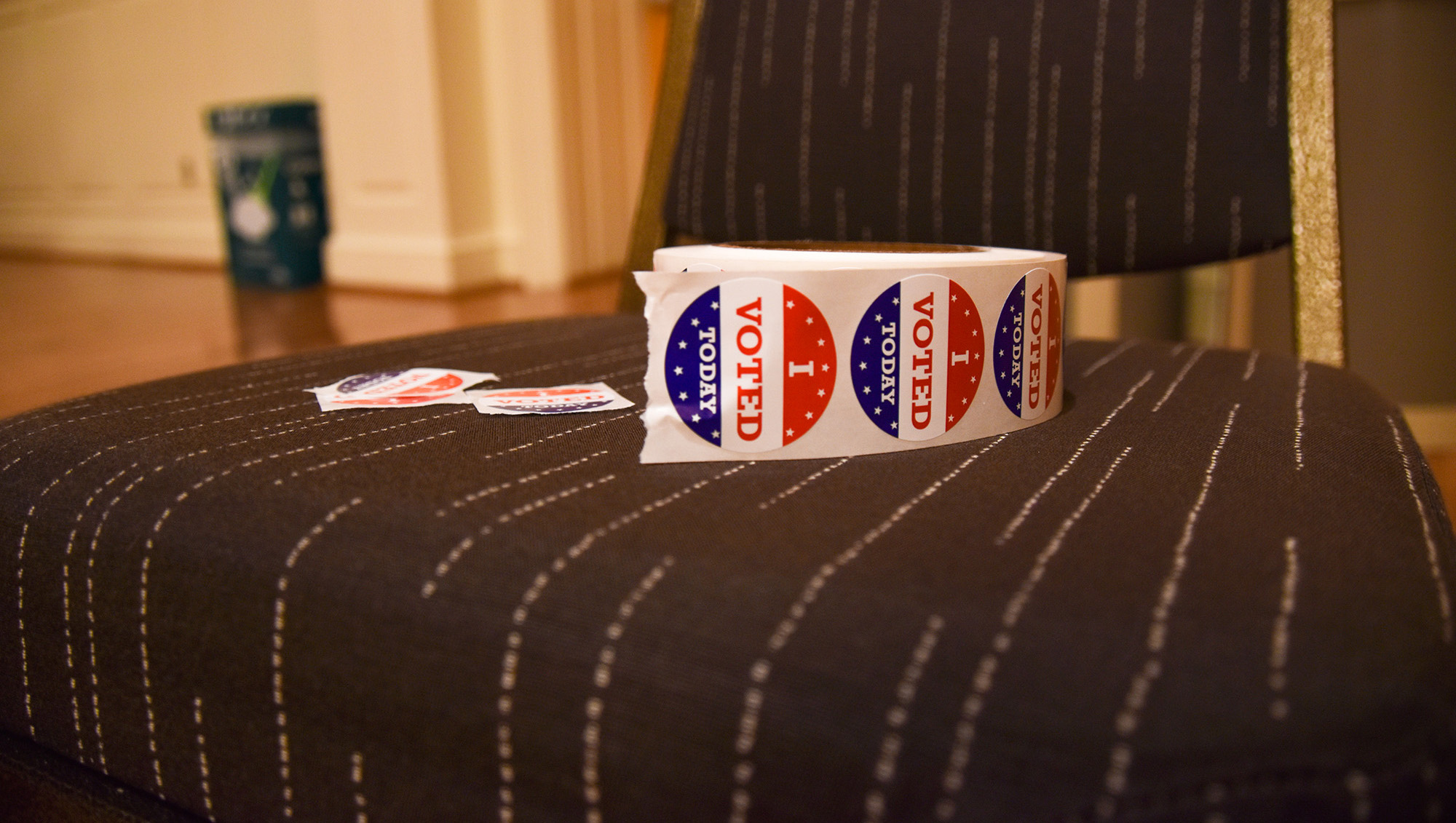At the University of Maryland, the months leading up to elections usually mean informational posters lining the halls, yard signs standing as reminders and student volunteers flagging down their peers in front of McKeldin Library asking, “Have you registered to vote yet?”
But as the Oct. 13 deadline to register to vote looms, the organizations that previously used these tactics to promote voter registration have had to adapt to an environment where the pandemic has kept most students shut inside or off the campus completely.
“We definitely had to change our whole trajectory over the summer but we came up with some exciting initiatives that we think will do really well in a virtual environment,” said Alexandra Marquez, the student co-chair of TerpsVote.
Marquez, a senior anthropology and journalism major, said the TerpsVote Coalition — a voting initiative composed of students and faculty members — now has to focus on reaching students virtually.
But there’s a balance, Marquez said. Students’ attention spans are already drained from sitting through Zoom classes and meetings all day, and the group doesn’t want to demand too much.
“The last thing I want to do is have to follow another account on social media or go do this other thing online while staring at a screen,” Marquez said.
[Maryland state delegate plans to introduce bill separating HBCUs from USM]
So, they’re trying a different approach. They’re reaching out to students through both the university and an initiative to have students to educate their peers about the voting process.
Marquez said they had pitched a course module in the spring on voting and elections to be a part of the UNIV100 orientation seminar. The lesson plan originally called for in-person “move around the classroom” activities, she said. But as the pandemic worsened, it became clear the module couldn’t go according to plan.
So, TerpsVote spent the summer modifying the lesson so it would work in an online-only environment and be flexible enough to be taught in as little as 20 minutes, she said.
“It comes with six different activities to do with your class that are all made for Zoom,” she said. “There’s a PowerPoint with lots of data, information on how to register to vote, why it’s important to vote, why it’s important for college students specifically to vote, how voting affects real issues in your daily life,” and more.
Marquez said the group is also recruiting student voting ambassadors from academic departments that historically have had lower voting rates, such as computer science, based on data gathered from Tufts University’s National Study of Learning, Voting and Engagement, which this university is participating in. The ambassador program launches Sept. 20 and runs until Nov. 7.
Ambassadors will be responsible for informing their peers about the voting process in a non-partisan manner, including making class announcements and speaking with individuals, according to a TerpsVote document.
For the university’s chapter of MaryPIRG, a student advocacy organization, setting up tables and talking to students outside places such as McKeldin was their go-to practice. That won’t be happening in the middle of the pandemic, said Sarah Shames, head of the New Voters Project for the chapter.
“It would be pretty irresponsible for us to both be doing tabling and running a public health campaign,” she said. “We also can’t do a lot of our typical going into classrooms and handing out forms and leaving voter registration forms in busy places. So our tactics definitely have changed.”
That’s not to say that the organization’s heavy emphasis on student interactions has gone out the window this year. The focus is now reaching students through calls and text messages, said chapter president Greeshma Anand, a junior physiology and neurobiology major.
[College Park City Council discusses proposal for student housing complex on Knox Road]
Despite the pandemic, MaryPIRG’s voter efforts are going “pretty smoothly,” said Ayanna Chambers, the chapter’s secretary and visibility chair. The sophomore psychology major said she feels like there’s even a silver lining to the greater focus on outreach by phone.
“When you’re tabling, people are trying to get to their classes, and they’re not really paying attention to you as much,” Chambers said. “So I feel like phone banking and text banking is like, ‘OK, here, I’m directly talking to you, you kind of can’t ignore what I’m saying at this point.’”
In 2016, the voting rate at this university was 60.4 percent, only a percentage point shy of the overall rate in the United States for that year.
“People should register. They should vote this November.” Shames said. “We’re all part of the largest and most diverse generation alive. So I, for one, really want to see what it looks like when 100 percent of us are voting.”



